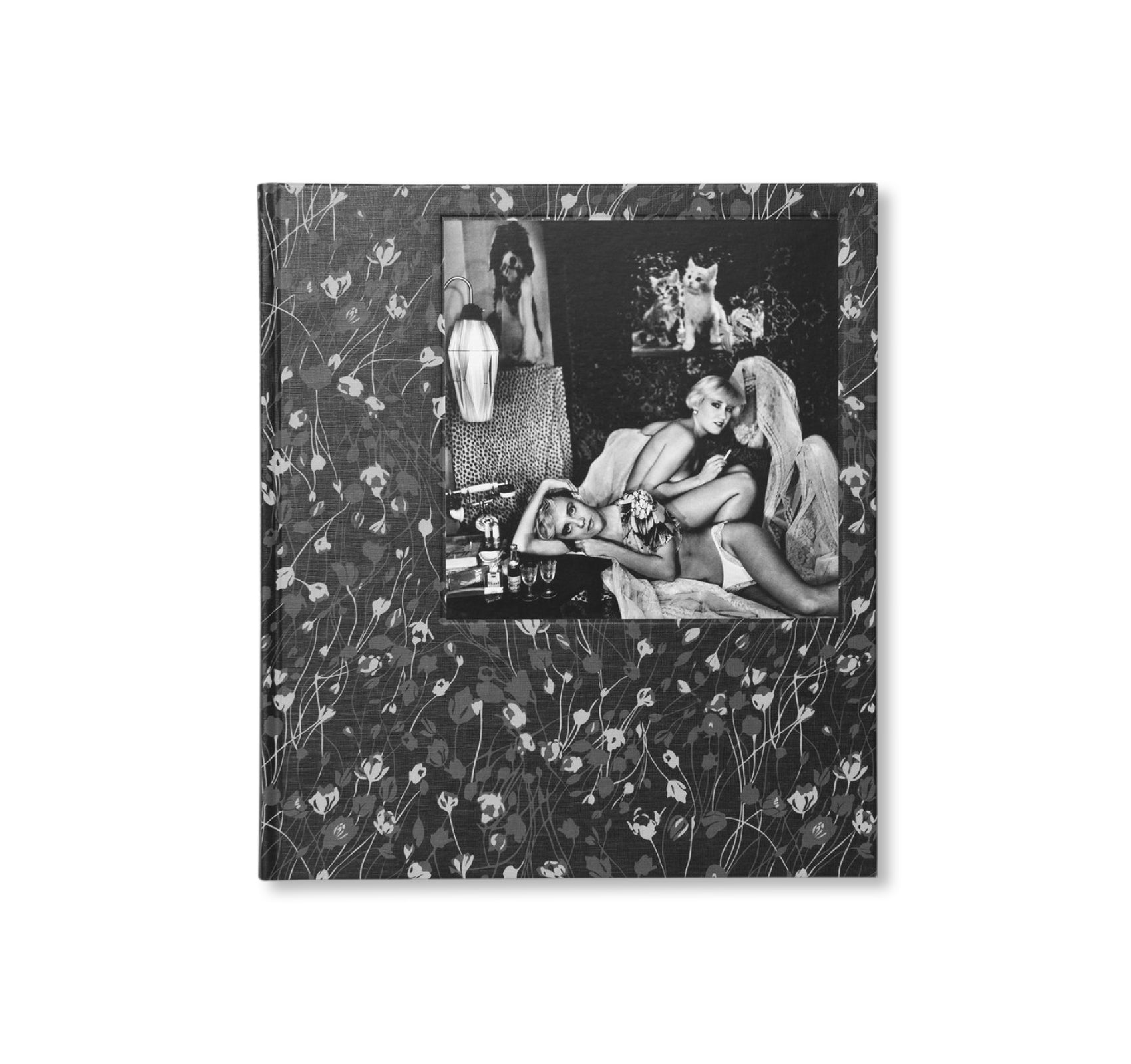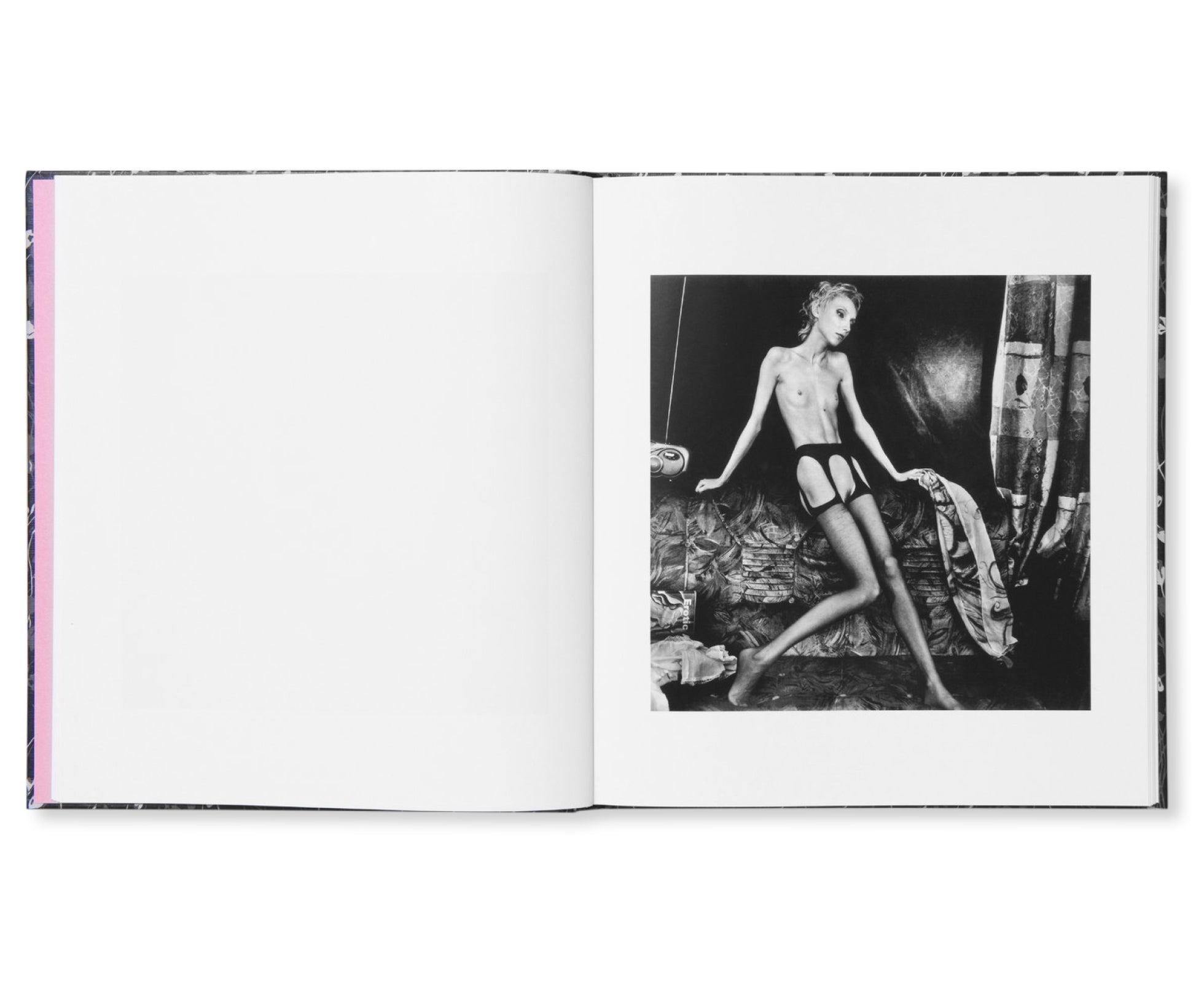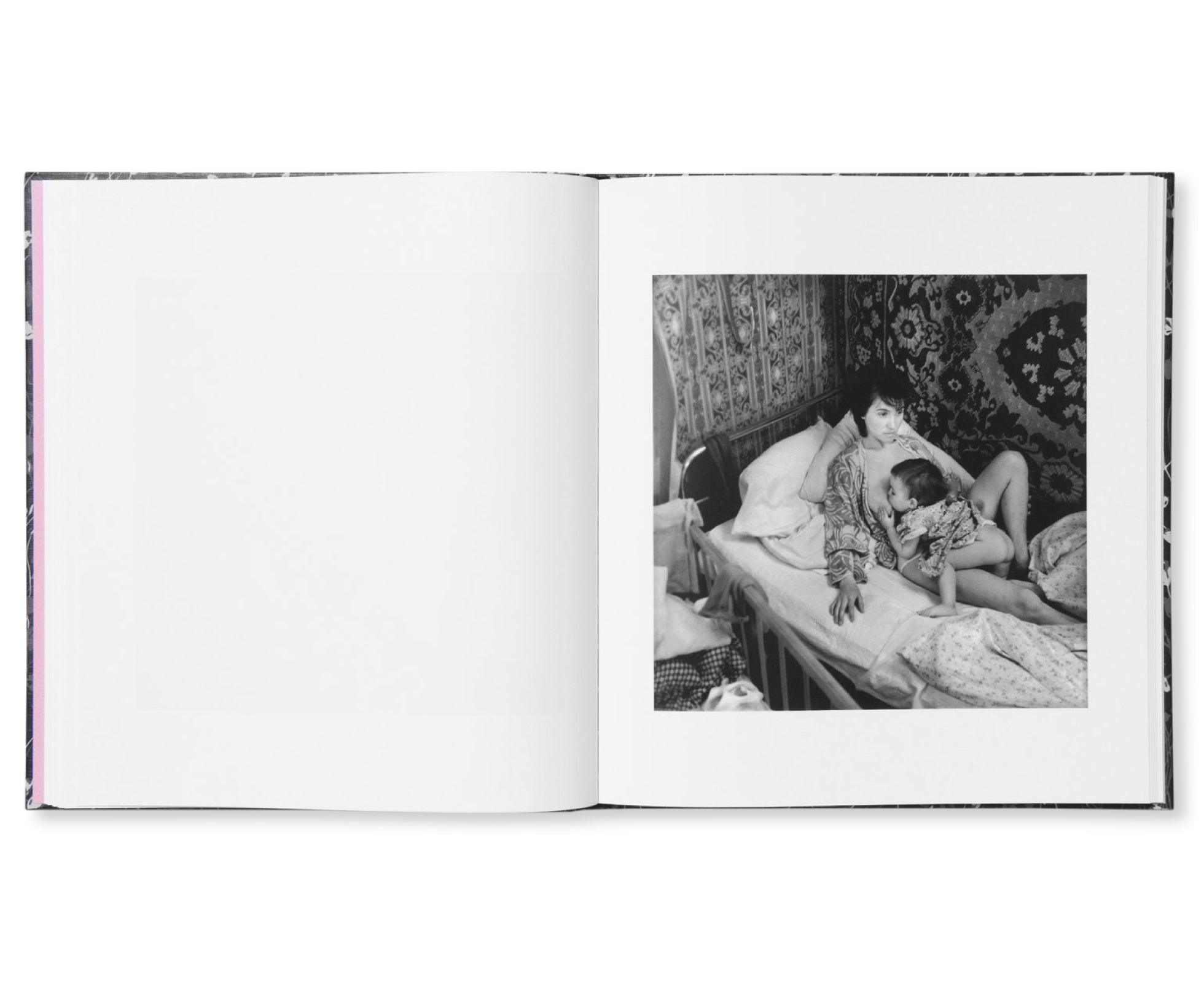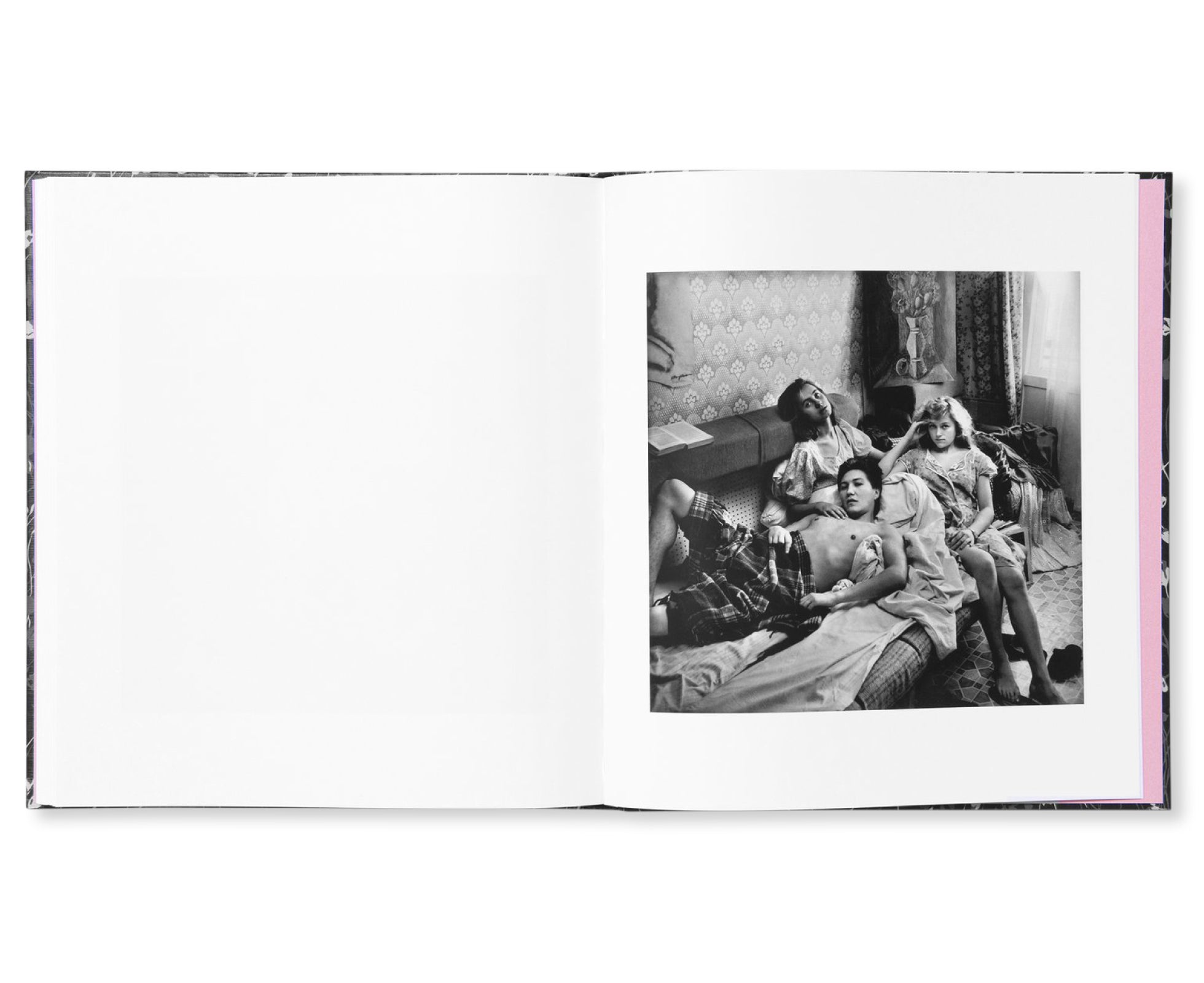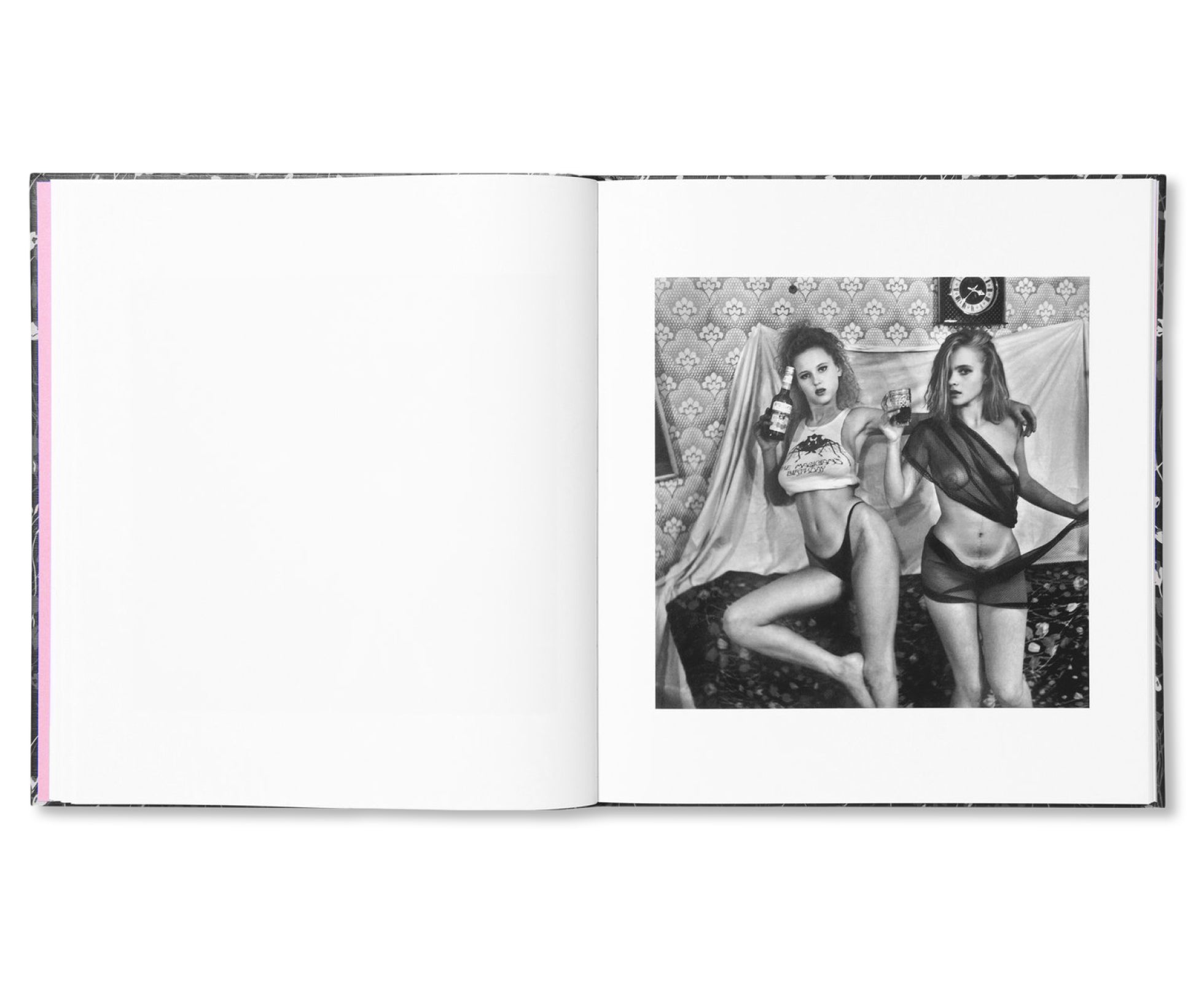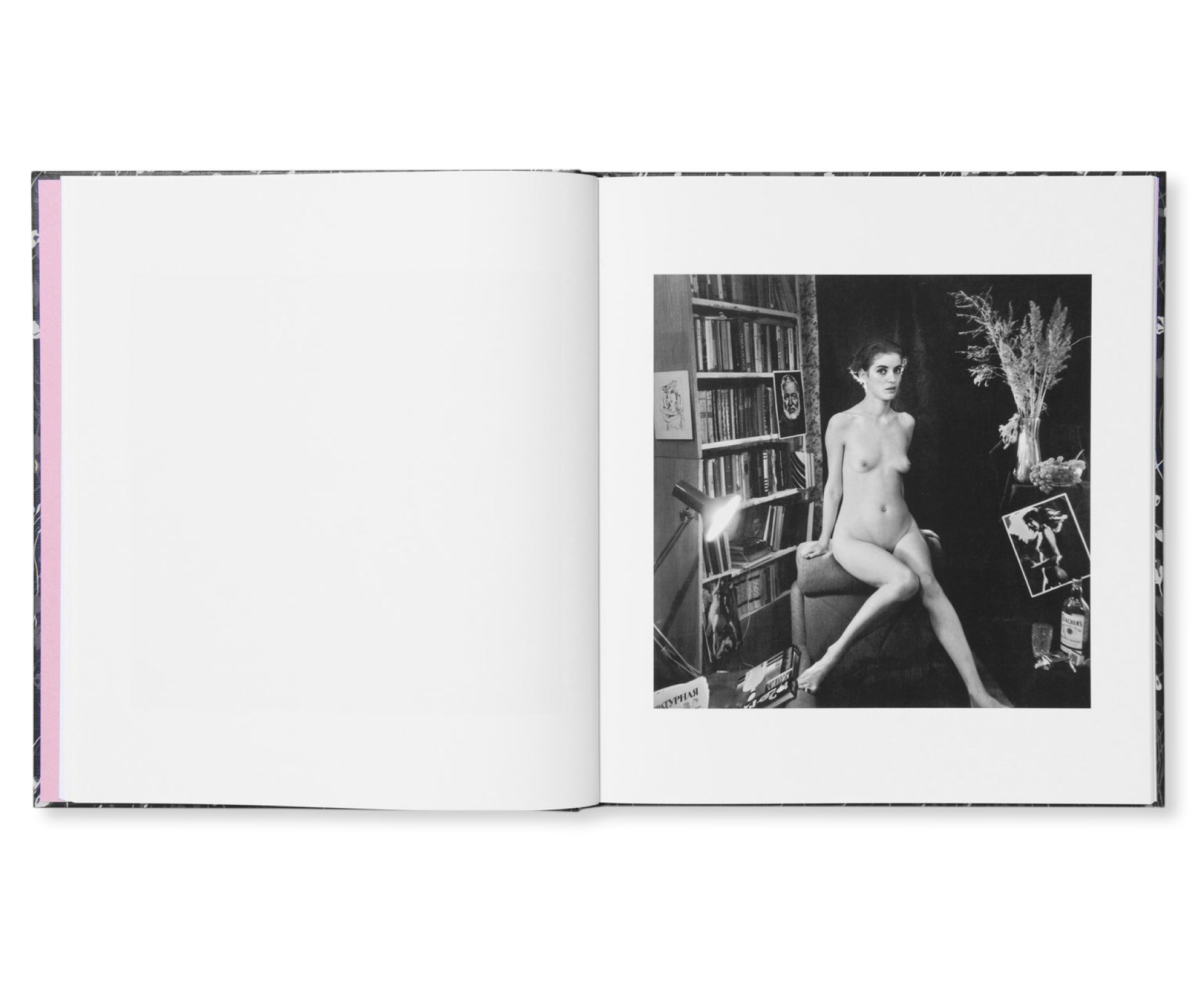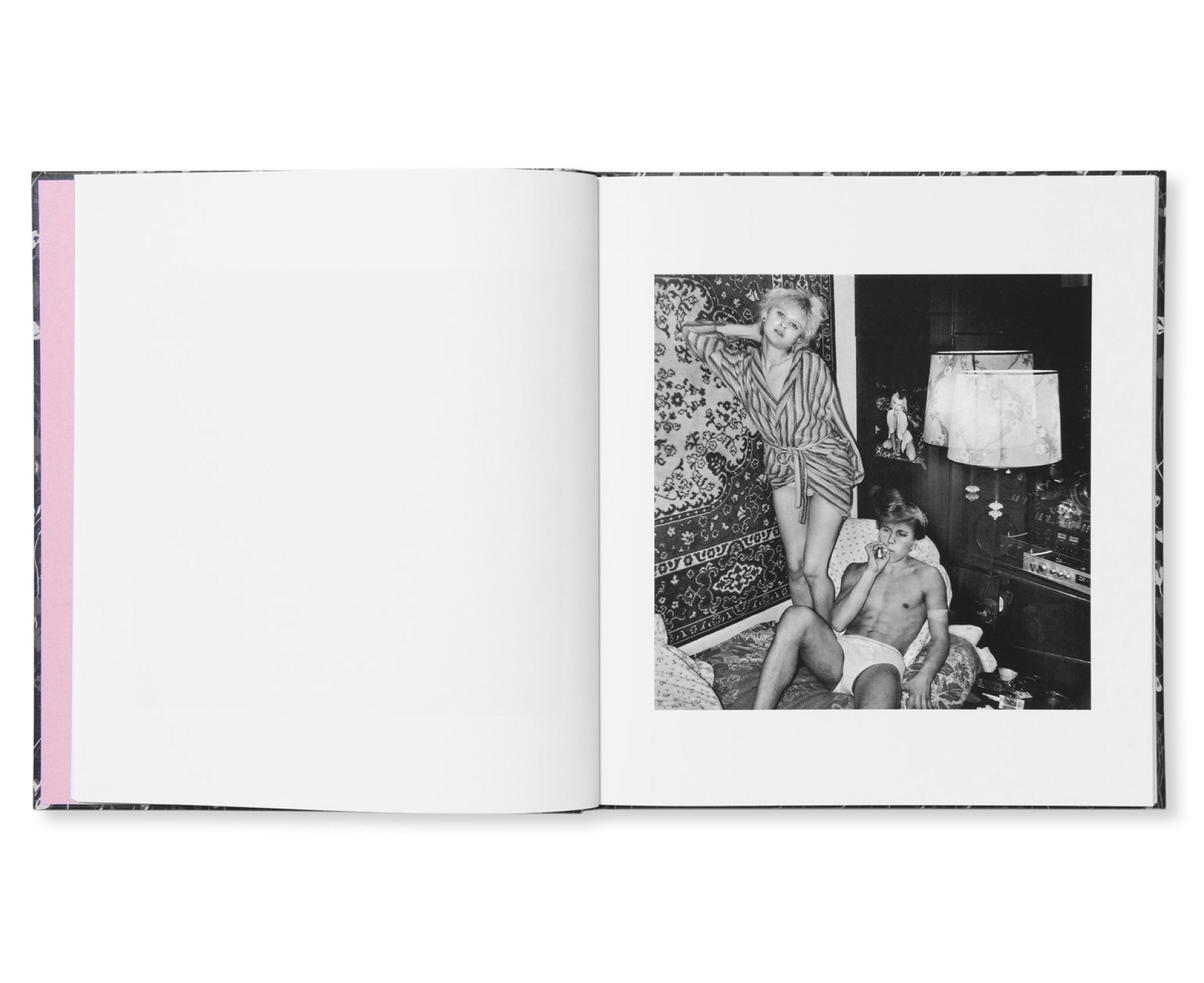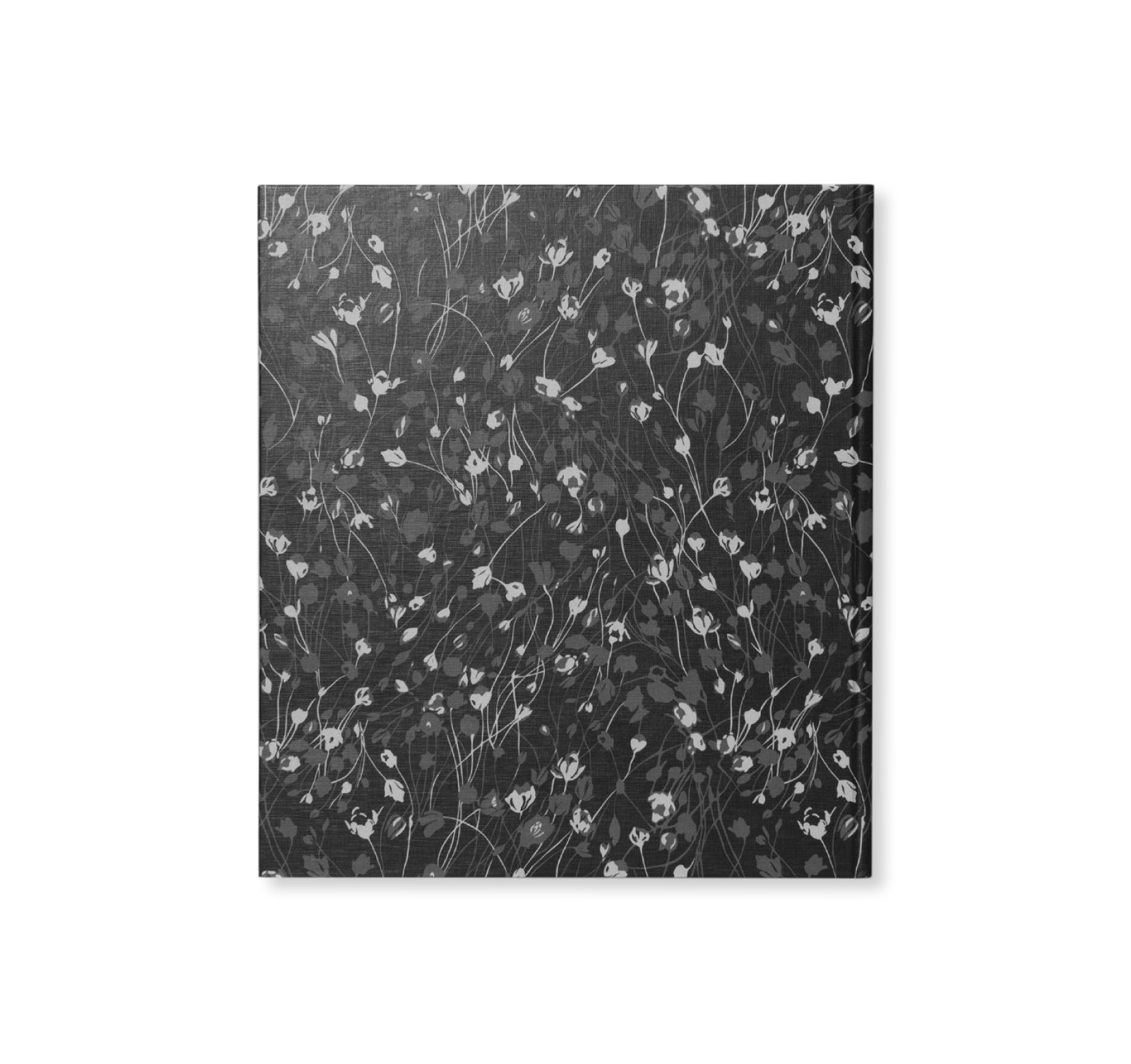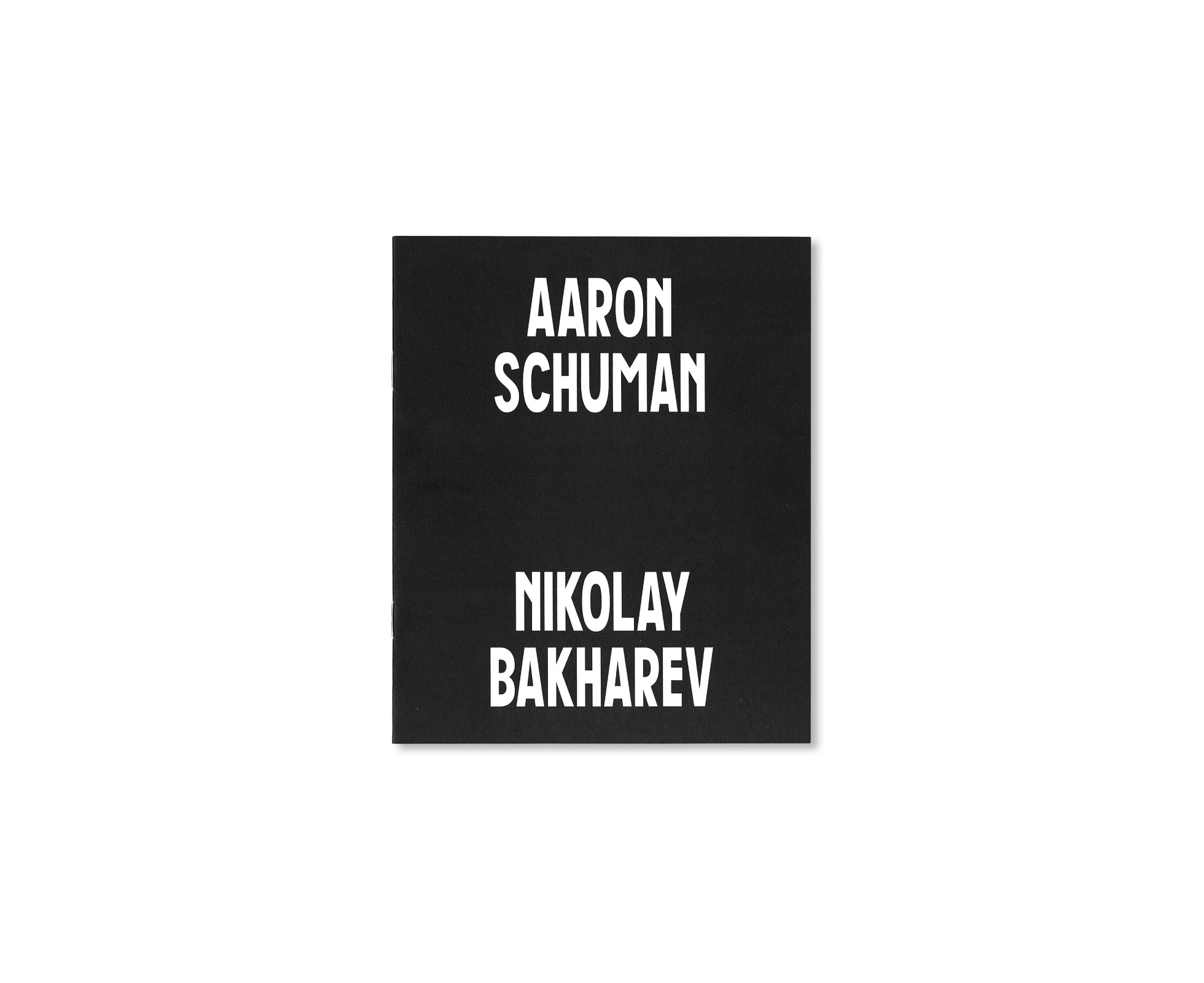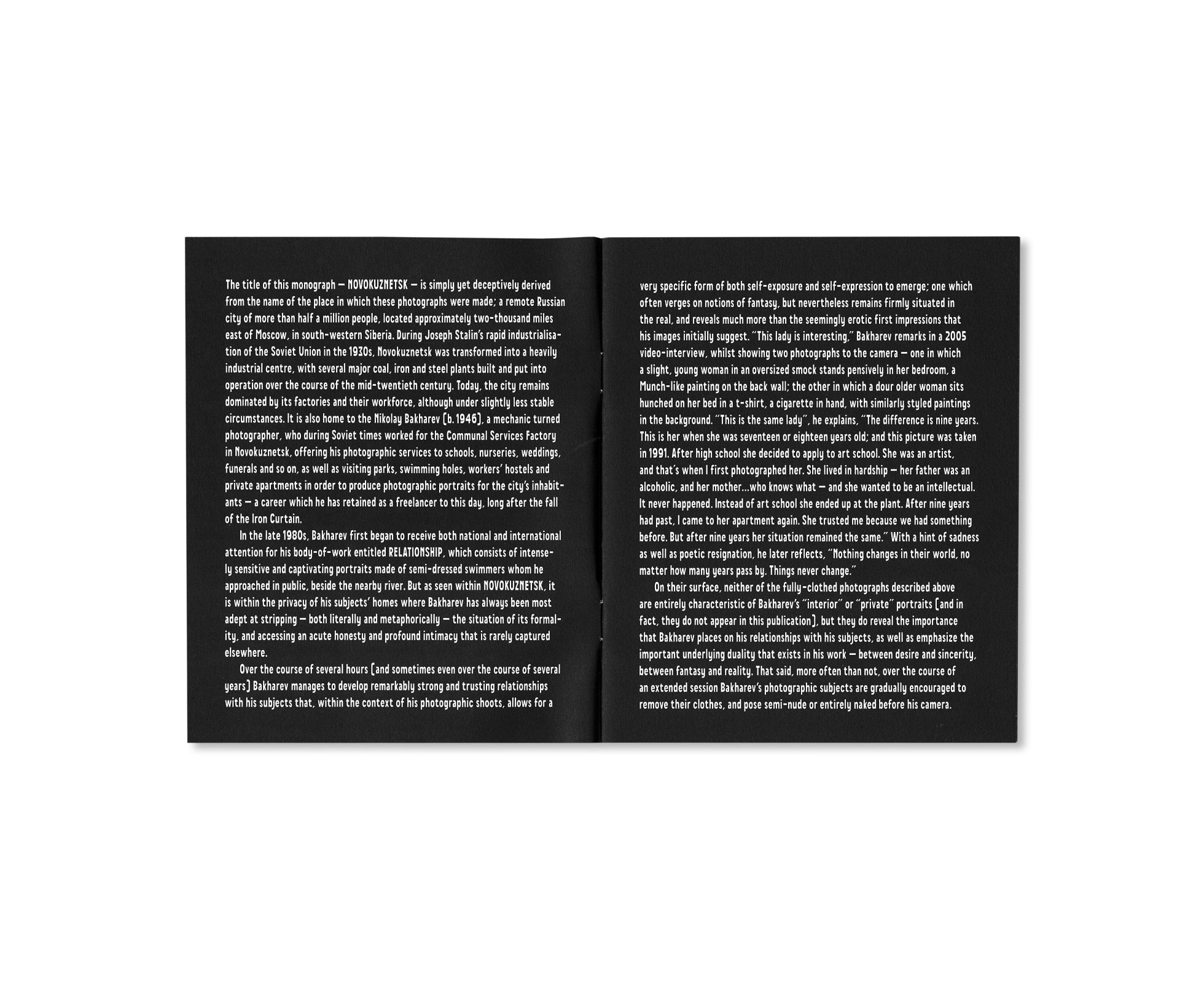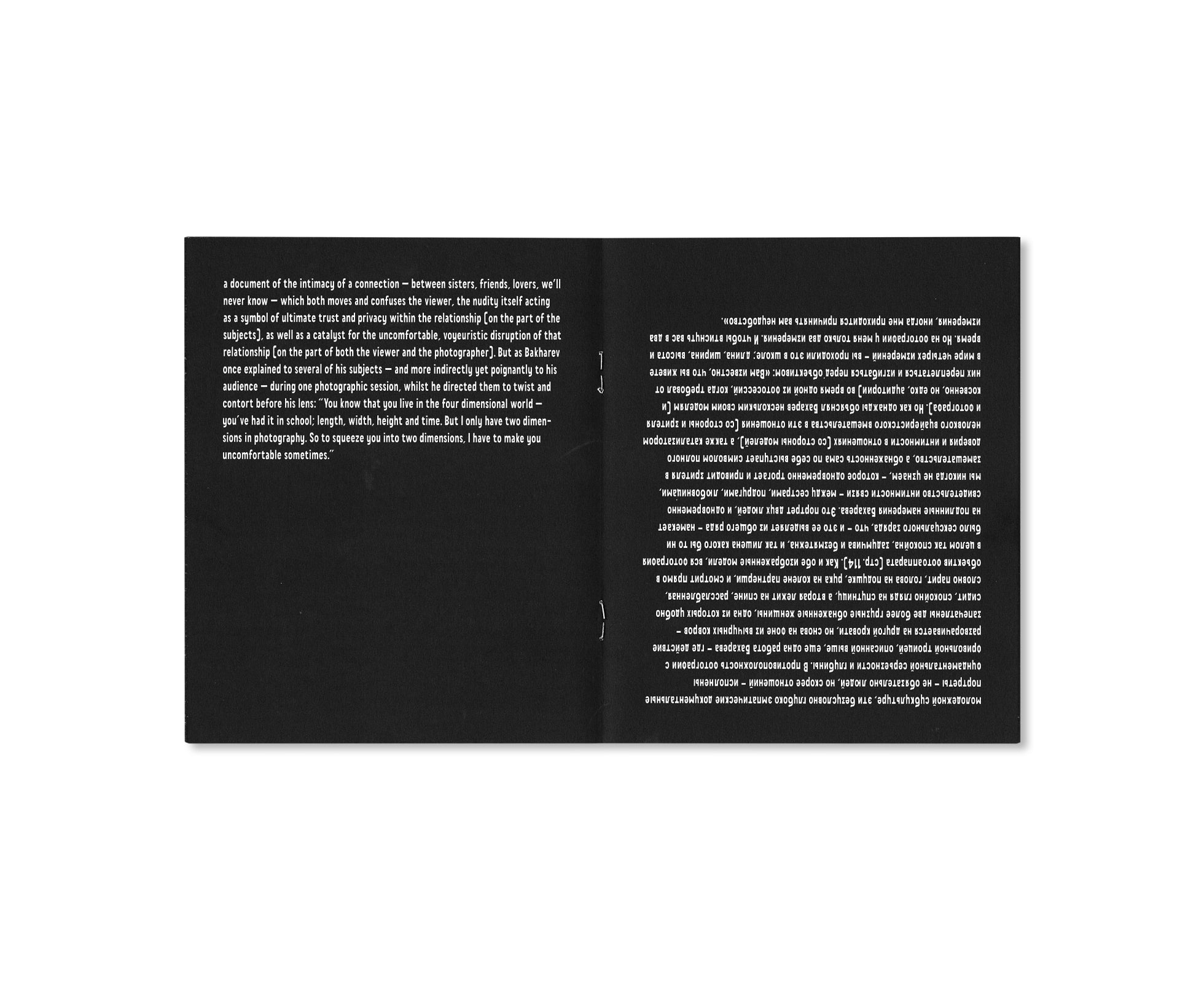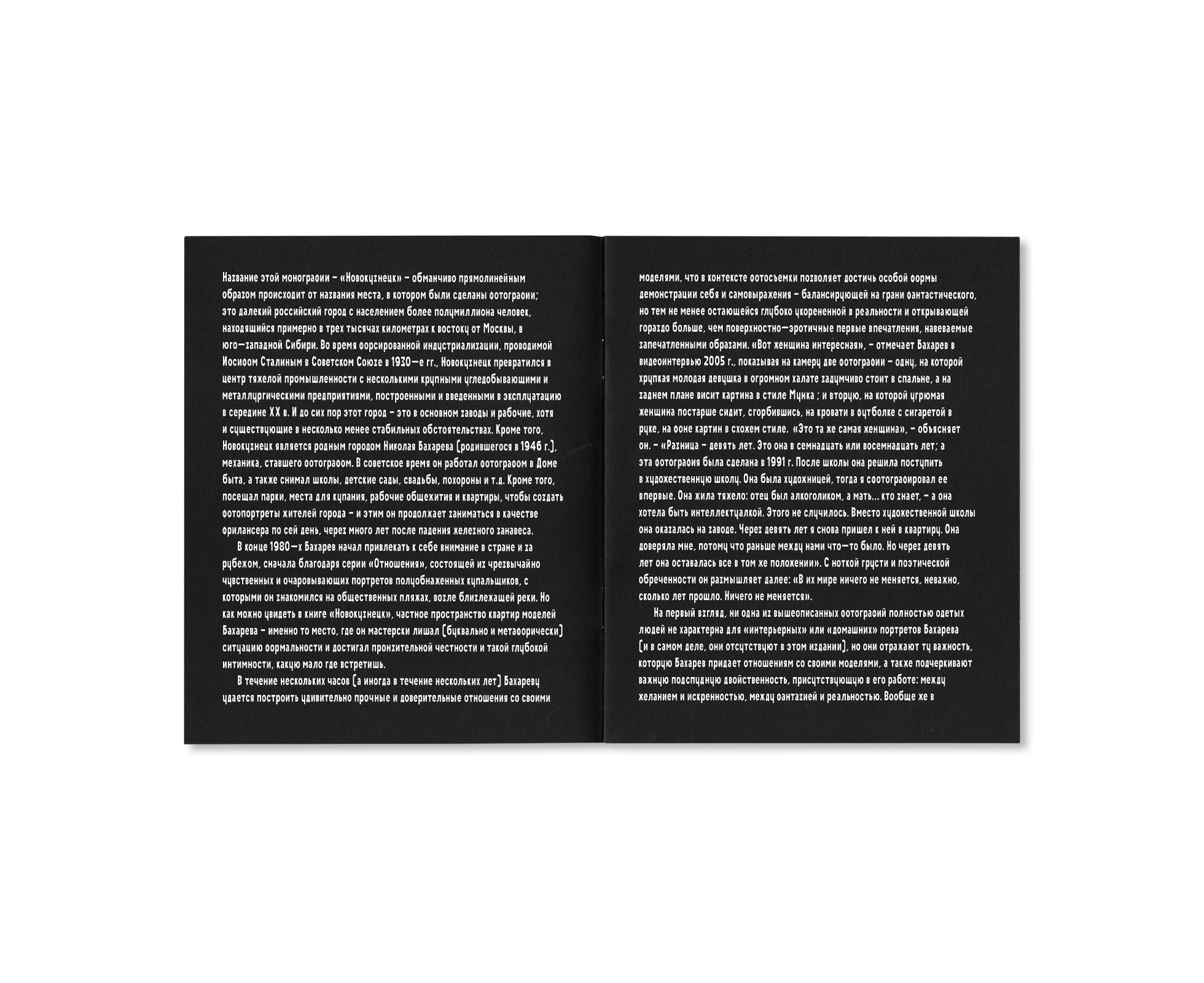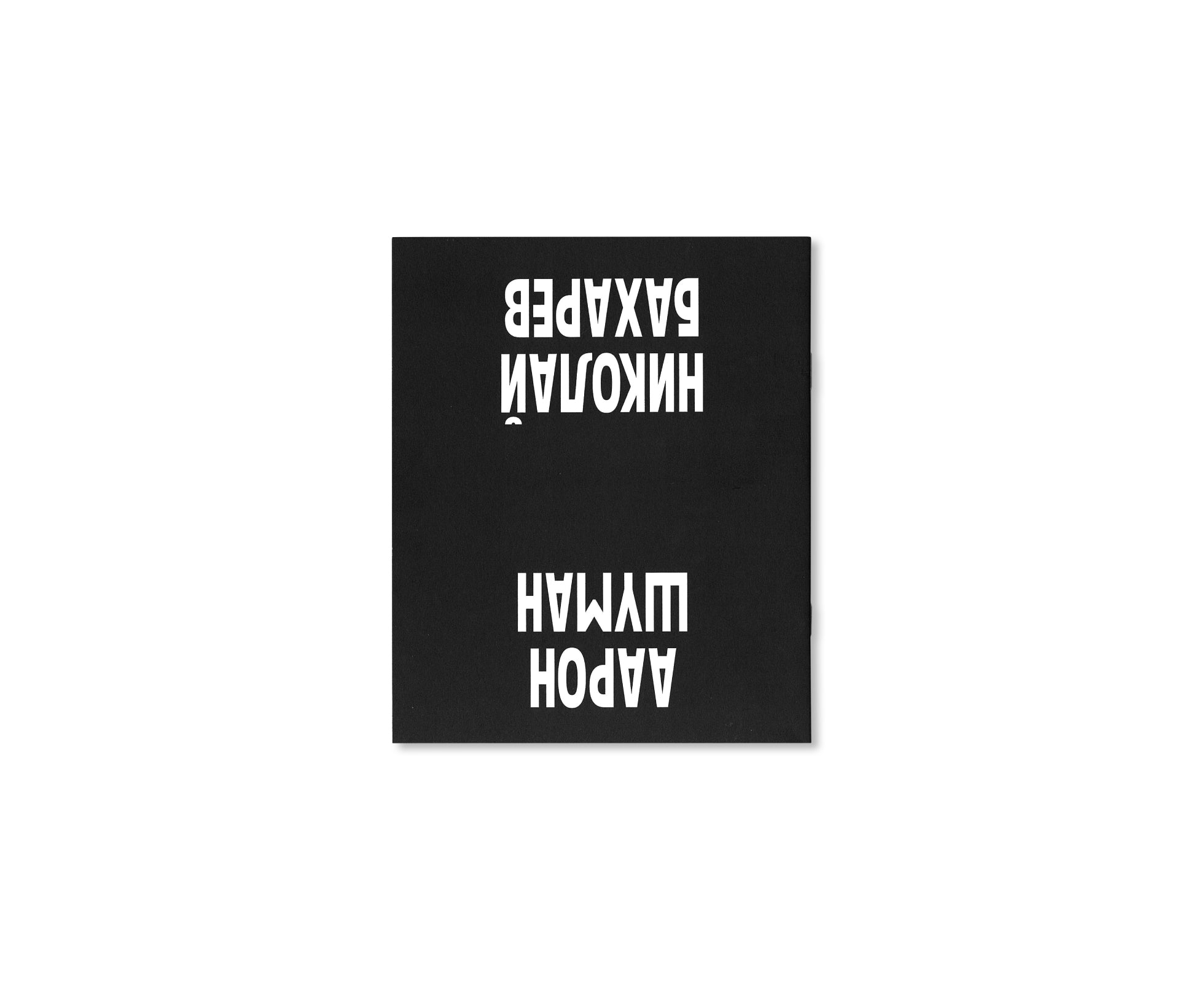NOVOKUZNETSK by Nikolay Bakharev
シベリア生まれのアーティスト、ニコライ・バカレフ(Nikolay Bakharev)の作品集。作者は1980年代のソビエト社会主義共和国連邦で修理工場の機械工兼フォトグラファーとして働きつつ、東部のビーチや公園に行ってはポートレイトを撮影して生活の足しにしていた。撮影が上手くいった時には、プライベートな写真を撮ろうと被写体に持ち掛け、長時間に及ぶ撮影の中で官能的なポーズをとるように誘導していったが、当時裸を写したイメージは重大な犯罪とされていた。1989年に鉄のカーテン(※註)が消滅すると、ポルノ写真家とさげすまれることは多かったが、アーティストとして精力的に活動を始めた。この時期の写真には、被写体の肉体が露わになっているということ以上に、工業都市ノボクズネツクの住人たちが抱いていた憧れや失われた夢、そして自分の信念を決して曲げなかった作者の執念を読み取ることができる。アーロン・シューマン(Aaron Schuman)によるエッセイを収録。
「彼のイメージ群を、思い通りに人を操った好色爺のエロティックな夢物語に過ぎないと片づけてしまうことはたやすいだろう。しかしここには、それとは別の何かが確かに内包されている。堂々と自らの肉体をさらけ出す被写体の眼差し、好奇心、自発的に違法な行為に加担しているという事実、撮影が行われた状況などを見れば、見た目の印象よりもずっと多くのことが起きていることが伝わってくる。この作品が投げかける問いも、明確な表現であるということも、どちらも露骨な性描写、覗き趣味、性的興奮を誘うためだけに作られたイメージを遥かに超えた境地にあるのだ。」- アーロン・シューマン
※註 第二次世界大戦後の冷戦時代に、ソ連と東欧の社会主義諸国が西欧の資本主義圏に対して門戸を閉ざした閉鎖的な緊張状態を表す比喩。
During the 1980s the Siberian artist Nikolay Bakharev worked as a mechanic and communal services factory photographer in the USSR. To supplement his income he would solicit work as a black market portrait photographer on the public beaches of Eastern Russia. If the shoot went well, he would invite his subjects to make further images in a more intimate setting, compelling his subjects over several hours into contorted, erotically charged poses, which at the time was highly illegal. After the the fall of the Iron Curtain, Bakharev began to work more openly as an artist, although often being admonished as a pornographer. His photographs from this time reveal more than just the bodies of his subjects, but the longing and dampened dreams of the inhabitants of an industrial town and the desires of an unrelenting artist.
"It would be easy to misinterpret these images as simply the pornographic imaginings of a manipulative and dirty old man, yet there is something else within them — in the subjects’ eyes, in their frankness, in their curiosity and collusion, as well as in their surroundings – that suggests that much more is going on here, and that what is both at stake and in evidence stretches far beyond the realms of explicit sexuality, voyeurism and mere titillation." — Aaron Schuman
